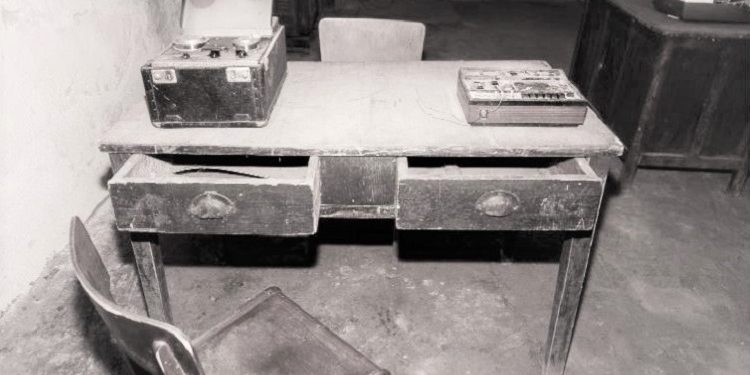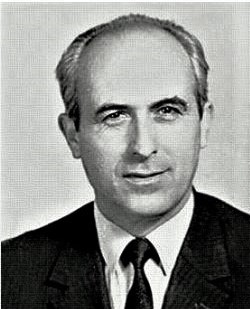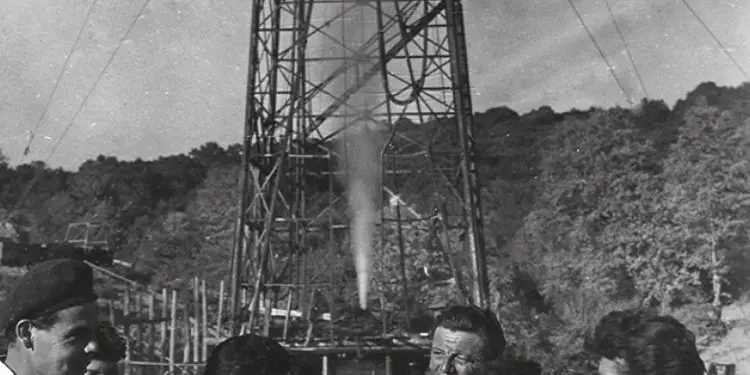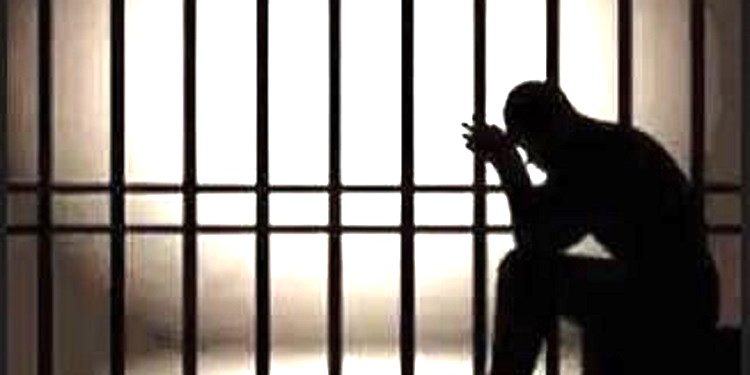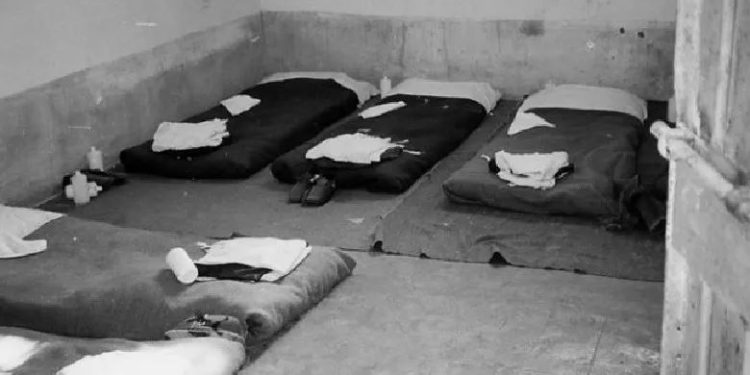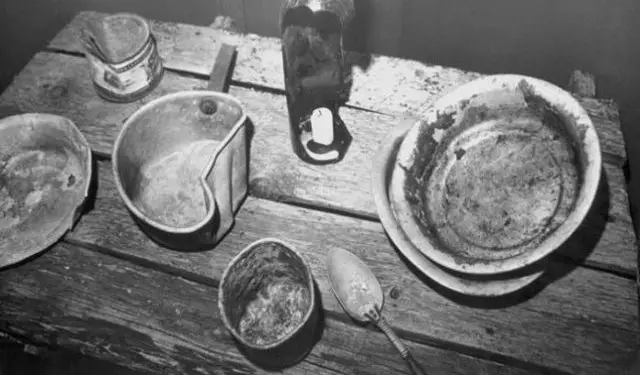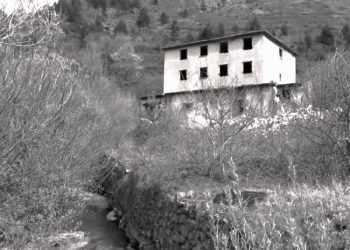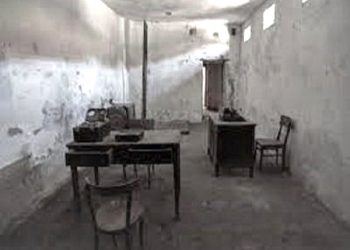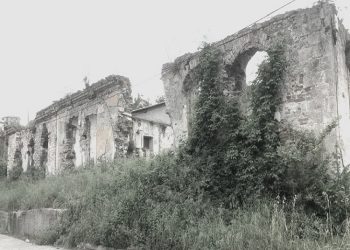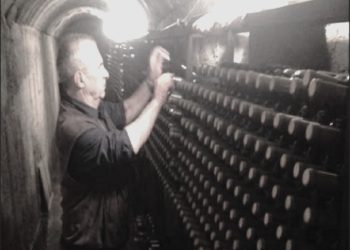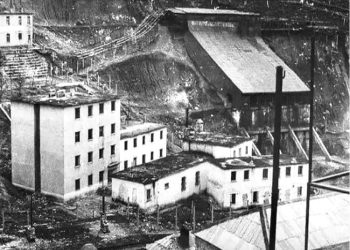By Petraq Xhaçka
Part twenty six
Memorie.al / The purpose of this book are to join the efforts made to present the truths and horrors of the communist dictatorship in Albania. The main purpose of the book is not to show our people or anyone else that we oilmen have been innocent, because this has become known from publications in our press, from foreign televisions, as well as from direct meetings with the International Forum and the Albanian Human Rights. The author’s desire, is that through this story, along with other stories, fight any manifestation in any form, even moderate, that he may have to create a communist society. I think that even through this bitter personal history, the cruel, treacherous and overbearing face of Enverism will appear, that for half a century, held the knife with the tip in the chest of the Albanian people, with a pine eye, intercepting the movements for salvation from the outside, or rebellion of the people themselves, ready to push the knife to the heart, at the first movement. The events have been set in the economic fields where it has appeared most strongly, such as the oil and gas industry, where I was fortunate to pour my energies, for a lifetime, and become a participant and witness in those events. All the events that are written in this memoir are true, not only without any exaggeration or embellishment, but perhaps, I don’t know how much I have been able to present the terrifying force of the events that took place in that decadent system of socialism, where no there was no human feeling.
Continues from last issue
The soldier on guard, who stood over our heads to guard us from doing any forbidden act, might well have been proud to be entrusted with such an important task, and perhaps looked down proudly on us through the barbed wire, at us engineers of oil, which was under his feet, but he forgot that with these thorns, the young man and his family were also surrounded, because none of them, as well as the entire Albanian people, dared to extract even tip toe outside such wires, which surrounded the border of our motherland. But unfortunately, he could not understand that the power that you had given him the weapon to protect us, unjustly, had turned the whole country into a big prison. In it, if you had sharper eyes, you would have seen that he was also staying inside the border wires, which was also guarded by his fellow Albanian soldiers.
In those dungeons there were also ordinary prisoners, for various crimes such as; murder, theft and strife. Often they caused a lot of noise, screamed and disturbed the peace of the prison. Policemen could be heard intervening and using force to put the thugs’ heads in the sack. They were short of breath and screamed louder for help, because they were drowning. These riots lasted for a long time, which made it more difficult to feel like a prison in that extremely heavy environment, which, unfortunately, we were lucky enough to have for a part of our lives.
A room served for this, where there were two open toilets of the old system, or alla turka, as we call them, and a long cement sink. There wasn’t a single piece of toilet paper in the toilet, so we cleaned ourselves by washing ourselves down, taking water by hand from a bucket, which we filled in the sink beforehand. It was another disgusting feeling for us; we were not used to that way.
You never found hot water in the bathroom. In winter, we washed our hands only with cold water and a laundry soap, which remained there even when we cleaned ourselves. During the time we stayed in the bathroom, or at the sink, the door was open and we used to relieve ourselves, under the observation of the policeman, who stood at the door to check us.
During the entire long period of investigation, we took baths only four or five times. Already in the dungeon, we would strip naked, as our mother had done for us, pass through the cold corridor in front of the policeman and enter the restroom, where a pipe was temporarily hung in a corner, replacing the shower and bringing warm water. The supply of warm water was often interrupted in the middle of washing, because the heating was done from outside in primitive ways, and we could hear the voices of the soldiers, who were engaged in this task.
This separate one had a window, but no glass, and as a result, bathing in the winter period was done in conditions of great cold, which made our bodies tremble like perches. There was no heating of any kind there either, this is not worth repeating. We had to finish washing very quickly, in a few minutes, because they told us that they didn’t have kerosene to heat more water. It’s hard to imagine how a person can stay without bathing for months.
We didn’t get the smell of stale sweat, because we took the underwear from home only once a month, when they brought it to us with the few foods that were allowed during the investigation phase. It is difficult for me to describe those moments, when I passed naked in front of the police, so that I could wash myself. Everything was boring, but again the desire to live was great and she won over all the difficulties. The severe prison conditions during the investigation bring to mind three cases in particular, which will remain indelible in my memory.
From the cold I had caught, or perhaps from the impurities in the food, once at midnight I had a stomach cut. I got up and knocked on the door for the police to hear. He was not long in coming and asked me what I was looking for. I told him that I had a very urgent need to go to the bathroom, that I was sick. After listening to me, he told me that he would go and call the officer of the guard, because even if he wanted to help me, the officer did not have a key to open the door of my dungeon. Came and I could hardly hear the policeman’s explanation on the phone, but after a while he came and told me regretfully that he had been ordered not to open the door.
– What about me? – I told him, – I have a stomach incision and I can’t hold it! – “I will discuss it with the boss again,” he said. He came back after a while and gave me the same answer, adding that the boss had said that in order to carry out the needs, there was a set schedule with regulations. – “I have nothing to do,” said the policeman. – I can’t open the door. Do the need there inside the dungeon, on the floor”. Although such an order was strange, I was forced to defecate on the floor, where I slept and where I often put my food.
Besides, I had no means of cleaning there, not only for washing, but also for wiping, after troublesome diarrheas’. I was forced to put on my underwear and pants as dirty as I was. My clothes and I now smelled terribly, but still, in that state, I was forced to lie down to sleep. The whole room was filled with an intolerable stench, and it remained so until the next morning, when the police made me wash the dirty floor. I was forced to take off my underpants and stay without them, because we weren’t allowed to keep spare underwear, but my pants, I had no choice, I was forced to keep them dirty like that for about three weeks, until it came the designated day to receive laundry from the family.
But the clean clothes that Zhan had sent me were worn on an unwashed body, because it was my turn to take a bath only after a few months. It’s anyone’s guess what a stinking stink I had for so long. No one cared; no one felt my suffering, which was by no means the only one. I had this situation during the investigation three more times, with the same vile attitudes of the prison police. Ten months of complete solitude, a maddened solitude made all the more oppressive, when I knew absolutely nothing about the family. I didn’t know anything about what happened in the life of the country, I had a complete lack of newspapers, news, conversations with people, other than the investigator, or the police.
I woke up one day in November with the first thought of my daughter, who had her birthday that day. It was Sunday and I was lying down remembering this marked date for our family. I started to cry and continued like this for hours, with a dark soul because of the disaster that had plagued my beloved daughter’s life, that without any fault, her future became black soil. He found me in this state when one of the investigators entered. He knew I had been crying because even though I managed to wipe away the tears by the time the door opened, my eyes were still red. He asked me why I was crying. I told him the real reason, and on this occasion, I begged him to tell me even a word, how I had my family and the daughter, for whom I was so worried that day. He didn’t open his mouth, but walked away as if I hadn’t asked him at all.
There was a policeman, whose name I don’t know, who behaved quite humanely when I asked him about anything. A feeling of pity for me was noticeable in him, and he did not hide this sign of human understanding. When he was in the service, several times he allowed me to sit down and cover my legs with a blanket. Once I asked him who brought me the food and he told me in a low voice, full of warmth, that there were two women coming to the gate, but he did not know who they were. That much he knew and that much he told me. I am grateful to this simple soldier, who you would have probably heard, that we were honest people and for that he radiated regret, something very rare for people who served in the repressive bodies of the dictatorship.
The communist regime in Albania, since 1967, closed and demolished all churches, mosques and other religious institutions. The practice of religion was punishable by law. I think this would be the most unique case in the world, when religion was completely banned. As a result, we had stopped going to pray in the church, which my family used to visit every Sunday, for many years. Going to the church filled every corner of my childhood memories. In addition, we had very good relations with Muslim families in Tirana and we looked at each other as friends and brothers. So after a long hiatus of many years, on June 29, which is Saint Peter’s day and at the same time it was also the day of the name that I celebrated, I decided to pray to the Great God.
The only hope was God’s help. It was useless for me to imagine any church in those parts, as they had all collapsed. Therefore, I turned my face to the west, in the direction of the city of Rome, where the famous church of Saint Peter was located, and although I was orthodox by religion, I prayed to this Catholic shrine, but which was also the house of God. I begged him with all my soul to save me and my prayer was heard by God who, in His greatest glory, brought me out alive from the clutches of the faraway. And not only that, but it gave me the opportunity to create a happy life for my family, with the help, kindness and justice of the most democratic and humane country in the whole world, the United States of America, a country that has blessed God, for the good things he has done.
Investigators as people
When they started the process with me, there were four of them and I learned their names and responsibilities very late. Three of them were the core group, who for eight months, in the investigative sessions with me, worked almost always together. Only in the last few months, there were rare occasions when I was dealt with by a single investigator. The head of the investigation group was the head of the investigation of Fier, who, out of overzealousness, did not send ordinary policemen, but came to my office and put the handcuffs on my hands. This, as I have said, held the office of the head of the investigation of Fier. He had a proud self, and in his words and in his severity, he was pleased that he had been entrusted with this important and delicate task.
The other member of the investigation group was Pajtim Lame, whom Rustemi had brought with him from Korça, when he was appointed chief in Fier. Who knows how many dirty crimes brought these two people together. In prison, political convicts from Korça, who had spent bitter nights under the claws of these hyenas, would tell me that in the Korça area these two were known as wild investigators, more wild than the local Korça investigators, who have remained known in the history of the local dictatorship. The people there harbored a great hatred for them and breathed freely when these two investigators removed them from there. Pajtimi had an average healthy build, was rather harsh and banal in his persistent questions, with a distinct accent of Vlora village speech.
The third person had come from Tirana, from the General Investigation of the Republic. There was a young man, tall, with a sweet-looking appearance, and his name was Behar. This was also the investigator, who was covering me specially. The fourth one, which I could line up with the first one, was the director of the Special Investigation in the General Investigation and stayed only in the first sessions. He returned to Tirana as soon as I declared my submission. From the remarks he made to me, during the days he stayed, I learned that he had studied in Moscow. He says he met me there when I was a student, but I neither knew nor remembered ever having seen him. Their difference was immediately noticeable even in the torture they inflicted on me.
Even these fine remarks can be made by the emaciated body of a scientific worker, of a doctor of sciences. From the first days, when all four rushed at me, my hands were tied, and they hit me with their fists, one after another, I noticed that it was the first that made me feel lighter, less nervous and less hateful of Behar, which changed like night and day, with the unrestrained ferocity of Fier’s chief investigator, Rustem Ajazi. And it may seem paradoxical, but Rustemi, in the first sparks of democratic transformations, not even three years after our sentence, was appointed head of the General Investigation of the Republic, for all those “merits” he had in his work from the mundane investigator of the dictatorship. It was the protests of the political prisoners, who were now seeing some space with freedom of speech that forced the transitional government to expel Ajaz from this position.
The investigators were not satisfied with the misfortune that had befallen us, but often, they burdened us with more serious insults, which we did not owe to anyone. I understand that in that system, people often voiced considerations that were not theirs, but they had no choice. This was the most common expression of the lack of freedom. Dictatorship regime, forcing people to be double-faced, to do what they would not say. A man, at that time, could spend his whole life doing a job he despised. Thus, the investigator could shoot that he was engaged in this work, which he did not like at all, and he was, let’s say, forced to act, as he did not want.
But no, in general, this duplicity was not noticed in the investigators of our group. In them, personal zeal was combined with the demands of the criminal profession. Rustemi and Pajtimi were typical in this regard. They were not satisfied with beatings and insults during the official working days, but their spirit did not leave them alone during the holidays. Especially on Sundays, when there was a football match in Fier and all the sports fans, happy or sad, according to the result of the match, would return from the stadium and pass on the road next to the location of the dungeons of the Department of Internal Affairs.
Rustem Ajazi, could not stay without returning to my dungeon. He knew that I was suffering spiritually, that the lack of ties with my family tormented me, and that even the redeemed return of those fans from the stadium made me jealous. Even in these psychologically difficult moments for me, Rustemi would go back to the prison dungeon, where I was locked up, open the lid of the small window on the door, and after showing me his hateful face there, he would order me to stand up. He said to me: “Hey, professor, what do we have?” Are you okay”? – And left.
This was cynical, mocking behavior, because he could never ask or even think about my health. He would return to the dungeon to survey his prey, and was delighted to see me huddled in a corner of the dungeon, cowering from the cold or disintegrating from the intense heat. He only came back to say to me: “Look at me going to the stadium, going back to my children, while your children are crying, without work, without school, without any rights in life”!
In the last two months, not all three members of the investigation team were necessarily present. On rare occasions, only the investigator who covered me, Behar Selimi, worked with me. In all those very long weeks and months that had passed, I had noticed that this investigator, even though he had the finest manners, apart from me, did not show the same harshness and ferocity as his colleagues…! That’s how I learned that he lived in Triana, that he was an only son and lived with his mother. Once, during a moment of short rest, I took courage and asked him an intimate question, which contained no enemies, no sabotage, no oil and no well: – “Why don’t you get engaged”? He looked at me in surprise, laughed and lowered his head. There was a short silence – and then he answered me: – “Girls, we investigation employees don’t like money.” – And then he jokingly added: – “Or, as it seems, they don’t like my teeth”!
Recently, when he was in the interrogation room alone with me, I noticed a gentle, almost subtle tone, and he never used violence. It felt present, but very hidden, a certain respect, with which I had a long time that I was not used to at all. I noticed this the day he opened a conversation about an oil well in Ardenica, about which he listened to me very attentively and completely left aside the search for connections with the Soviets. Another time, he shyly showed me some consideration.
– “Petraq, I have had the opportunity to investigate many defendants with serious charges. They were specialists, leaders and important party cadres. I see that you are not only a very skilled specialist, but also a very smart man. Your situation is difficult. I have never met a defendant who understands him so accurately”!
After that, I begged him to bring me a coffee. I hadn’t put coffee in my mouth for months. It wasn’t long before one day he handed me some ground coffee in a paper bag. I thanked him for this rare gesture, for an investigator of political affairs, and with previously untested taste. During the entire investigation session that day, I put coffee powder in my mouth. The impression that he differed in character from his other two colleagues was reinforced. That’s why I decided to have a conversation where once again, indirectly, I would let them understand honestly that everything I was admitting, everything I was writing and recording was fiction and nothing more and if anything happened to me , maybe once he could say somewhere, this truth.
Of course, I couldn’t tell him such a thing openly, because I didn’t trust him completely and I didn’t want to start the torture all over again. And one day, when we were alone in the interrogation room, while we were writing a summary of the features that needed a final touch, he decided to take a break and lit a cigarette. He gave me a cigarette too. Taking advantage of this break, I crossed the border and said: Memorie.al
The next issue follows




